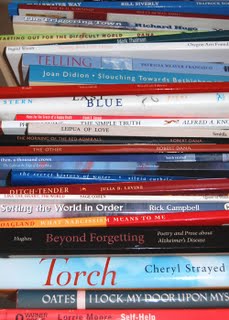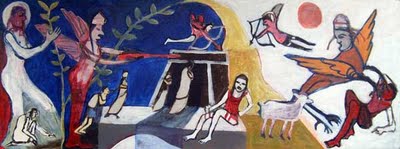Toss the plans

You will be a starlight when you grow up.
When I'm not a writer-for-hire, I'm a writer-for-fun. I lead writing groups for students ages 9 to 19.
Life takes odd turns. Five years ago when I stumbled into "teaching" (not teaching as much as encouraging), I wasn't crazy about children. Teenagers were daunting. Youngsters were alien, and I had no maternal instinct. Today I am as surprised as anyone to realize I have become attached to these energetic, impressionable, loving children. This is the most fulfilling, and emotionally challenging work, I've ever done.
There are three groups and we meet weekly: Happy Hour (for 9 - 11 years), Writing Club (for 12-13 years) and Writer's Group (for 14-19 years). The programs are part of Seashore Family Literacy (a nonprofit organization) and we meet at the Waldport Community Learning Center.
I am a planner by nature. Organized and structured. I make detailed plans for each week — writing prompts, discussions, books to share, poems to read. But this week I was reminded that the best writing sessions are often the ones in which plans are tossed aside.
The other day, the Happy Hour kids rushed into the Writing Studio in a whirl of giddy excitement. As a reward for good behavior, they had been given fortune cookies. They couldn't wait to share their fortunes with the group.
You will find happiness in unexpected places.
Good luck is just around the bend.
Gathered in a circle, we listened intently and dissected each message: What could it mean? What is happiness? What would luck bring?
We were animated with possibility, and wanted more. So we wrote our own fortunes! Pencils flew across pages. Papers were torn and creased into complicated folds. We traded our palm-sized scribbles with enthusiasm and rushed to share them aloud.
It was 10-year-old K. who saw starlight in my future. I can't wait to grow up.
 Friday, February 12, 2010 at 2:47PM
Friday, February 12, 2010 at 2:47PM  2 Comments |
2 Comments | 


